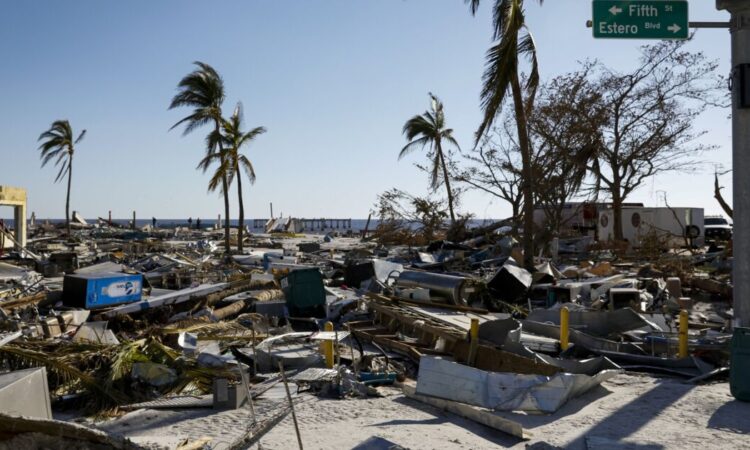
Mortgage activity slowed for the seventh time in the past eight weeks, as Hurricane Ian added further downward pressure on already falling national demand, according to the Mortgage Bankers Association.
The MBA’s Market Composite Index, a measure of loan activity based on surveys of association members, fell a seasonally adjusted 14.2% for the week ending Sept. 30, a seven-day period dominated by news of the hurricane devastation in Florida. Weekly activity came in 68% below its level from the same week one year ago.
“Mortgage rates continued to climb last week, causing another pullback in overall application activity, which dropped to its slowest pace since 1997,” said Joel Kan, MBA’s associate vice president of economic and industry forecasting, in a press release.
“There was also an impact from Hurricane Ian’s arrival in Florida last week, which prompted
widespread closings and evacuations. Applications in Florida fell 31%, compared to 14%
overall, on a non-seasonally adjusted basis,” Kan added.
Both purchases and refinances declined. The seasonally adjusted Purchase Index dipped 13% from the prior week and sat 36.9% below its level of a year ago, even as multiple reports over the past month from the likes of CoreLogic and the Federal Housing Finance Agency show housing prices beginning to decline on a monthly basis.
The Refinance Index fell 18% week-over-week, with volumes now off 86% from the pace of a year ago. The refinance share relative to total activity also decreased from seven days earlier, falling to 29% from 30.2%.
Government activity slowed — although not as steeply compared to the overall market — but its share of applications increased. The Government Index dropped 11.8% on a seasonally adjusted basis, but loans guaranteed by the Federal Housing Administration accounted for 13.2% of all activity, up from 12.5% a week earlier. Department of Veterans Affairs-backed mortgages took the same 10.7% share it did the prior week, while loans coming through the U.S. Department of Agriculture also remained unchanged at 0.6%.
The elevated share of government-backed mortgages to support the financing of more affordable properties helped drive down average loan amounts of both purchases and refinances. The mean purchase amount on new applications last week came in at $406,200, a 1.3% decrease from $411,700 seven days earlier. The mean refinance size dropped 3.1% to $263,300 from $271,800 week over week. The overall average amount for all weekly applications slid 1.2% to $364,800 from $369,400.
The steady surge in interest rates, with spreads widening between conforming and jumbo loans, have led to recent heightened interest in ARMs, according to Kan. Adjustable-rate mortgages increased their share of overall activity for a second week in a row to 11.8% from 10.4%.
The contract interest rate for 30-year fixed mortgages with conforming loan balances of $647,200 or less among MBA members accelerated to an average of 6.75%, up from 6.52% a week earlier. Points decreased to 0.95 from 1.15 for 80% loan-to-value mortgages. Over the past two weeks, the contract 30-year average has risen 50 basis points.
“The current rate has more than doubled over the past year and has increased 130 basis points in the past seven weeks alone,” Kan said.
The average interest rate for 30-year fixed contract jumbo mortgages, with balances greater than the conforming amount, also climbed to 6.14% from 6.01% the prior week, while points increased to 0.79 from 0.7.
Interest rates for FHA-backed 30-year fixed mortgages leapt 43 basis points to an average of 6.6%, compared to 6.17% seven days earlier. Points increased to 1.51 from 1.31.
Averages for 15-year and adjustable-rate loans, likewise, followed suit. The average contract interest rate of the 15-year fixed mortgage rose to 5.96% after finishing at 5.7% the previous week, with points decreasing to 1.08 from 1.33.






